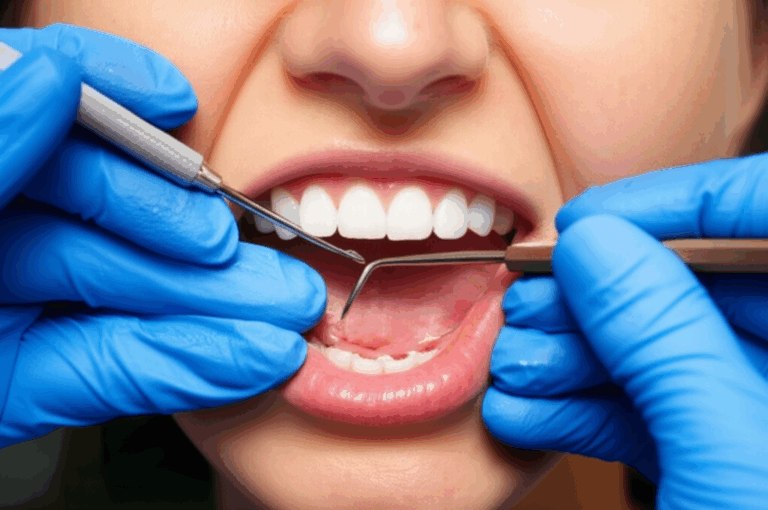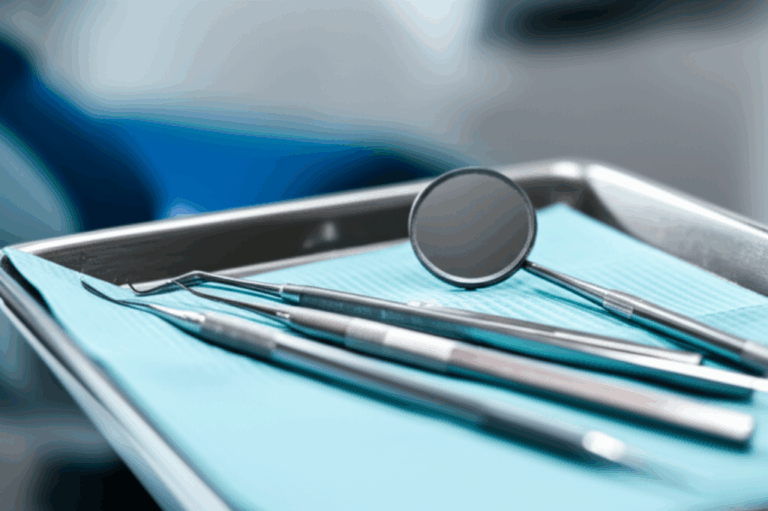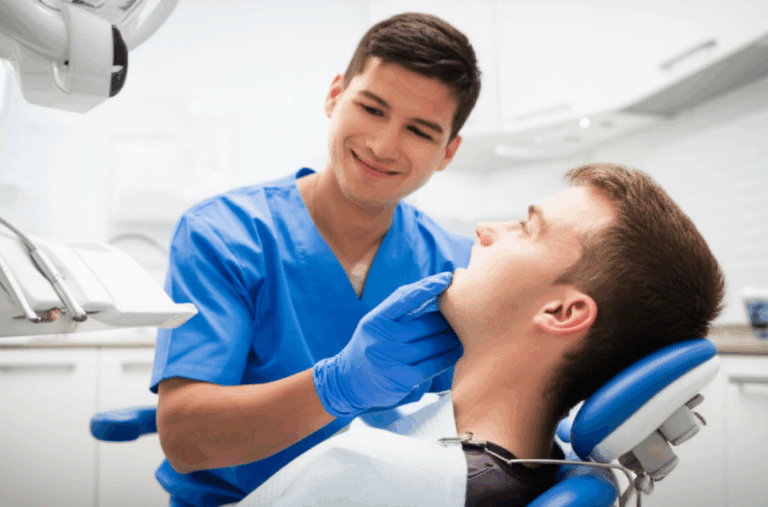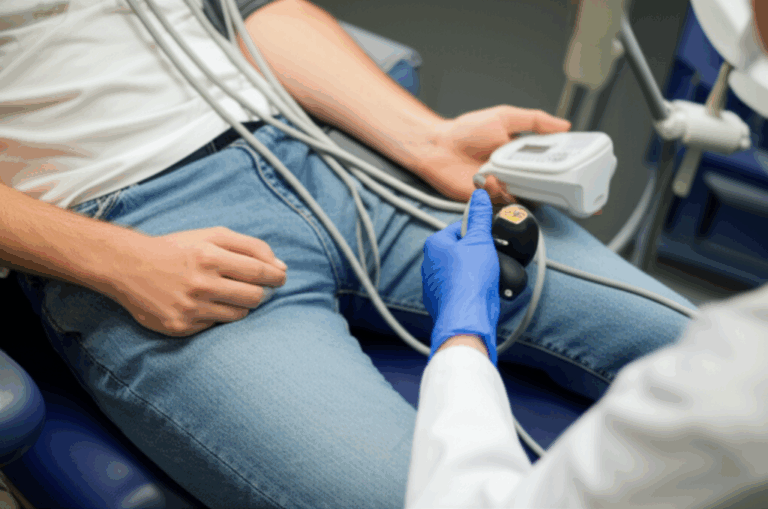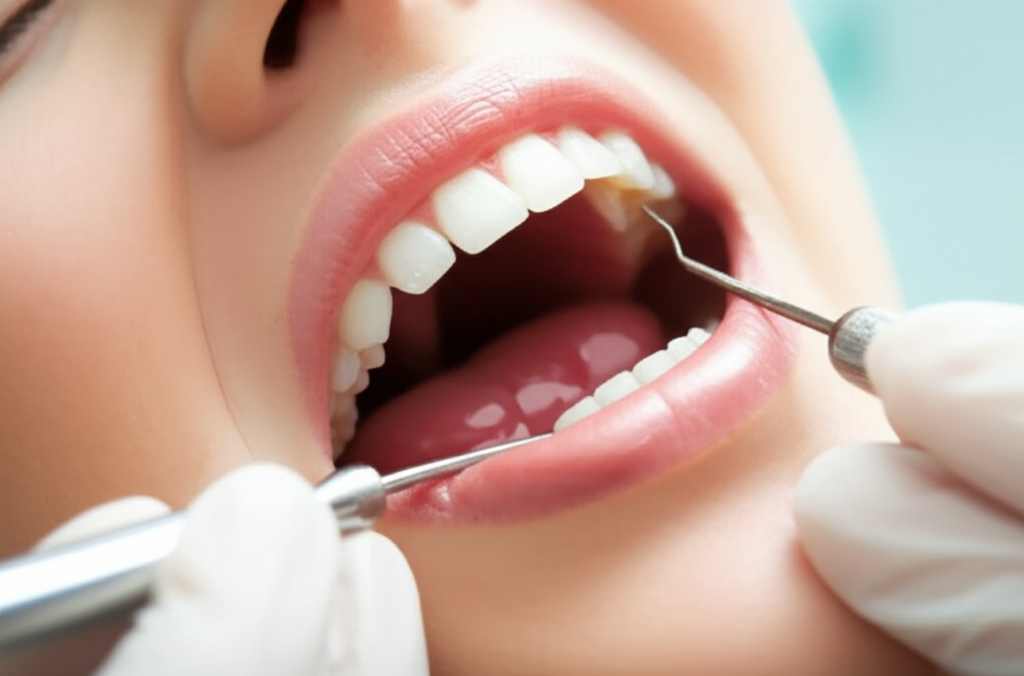
Can a Dentist Diagnose Oral Thrush? My Complete Guide to Dental Diagnosis and Treatment
Table of Contents
Introduction: My Discovery About Dentists and Thrush
I’ll be honest, before I dealt with oral thrush myself, I didn’t know much about it, or who was best to see about it. A friend told me about their white tongue and said they saw their dentist. I didn’t really believe it at first. But after my experience, I learned something big: yes, dentists do much more than just teeth—they really can find oral thrush, and they do it a lot.
Why should you care? Catching thrush early means you get better faster. It can also show that you might have other, bigger health problems. In this guide, I’ll show you just how dentists handle thrush, from what they look for at the start to how they help you after it’s gone. I’ll explain what signs to notice, how they make their diagnosis, when you need to see your doctor, and what helped me keep thrush away. Let’s begin.
What Exactly Is Oral Thrush?
Defining Oral Thrush
Oral thrush, also called “oral candidiasis,” is an infection in your mouth caused by too much of a fungus named Candida. Usually, this fungus is there all the time and doesn’t do any harm. But sometimes, it grows too much and causes those annoying and easy-to-see white patches.
Recognizing Thrush Symptoms
For me, thrush started as a strange, creamy spot inside my cheek, then it went to my tongue. It didn’t just look weird—it made my mouth burn, changed the way things tasted, and hurt a bit when I swallowed. For people with false teeth, sore spots under the teeth are common. Here’s a list of classic symptoms I (and lots of others) had:
- White, creamy, or yellow patches
- Red, sore spots under the patches
- Pain or burning in the mouth
- Trouble swallowing or feeling like food gets stuck in your throat
- Cracked corners of the mouth (also called angular cheilitis)
- Not tasting right, or a bad taste in the mouth
Some people have just a little pain, or none in the beginning, but you shouldn’t ignore oral thrush.
Understanding Causes and Risk Factors
Why did I get thrush? It was from my recent antibiotics for a sinus infection—they messed up the natural balance in my mouth. But it’s not just antibiotics. Here’s what I found out puts people at risk:
- Antibiotics use (kills “good” bacteria)
- Using steroid inhalers (like for asthma)
- Not having diabetes under control
- Weak immune system (like with HIV, cancer treatments, or autoimmune problems)
- Wearing dentures—especially if not cleaned well
- Smoking
- Dry mouth (from medicines or other health problems)
- Not brushing or cleaning the mouth enough
It’s not just adults. Babies, people with bad fitting dentures, or anyone who’s just been sick can get thrush too.
The Dentist’s Role in Diagnosing Oral Thrush
When I went to the dentist for my strange mouth spots, I wasn’t sure it was worth it. Wasn’t this something for the doctor? Turns out, dentists often find thrush first, because they spend so much time looking in your mouth.
A Closer Look at the Oral Exam
Dentists are the experts in mouths. When I sat in the chair, my dentist didn’t just check my teeth, but really looked at my tongue, cheeks, gums, the roof of my mouth, and even my throat. She used a small mirror and a gloved finger, looking for anything odd.
This full-mouth check is important because most cases of oral thrush are easy to spot by looking. How a patch looks and if it scrapes off gives clear hints.
Getting the Full Picture With Patient History
After looking in my mouth, my dentist asked me a bunch of questions. Did I change my routine? Was I taking any new medicines? Had I been sick? Turns out, all these questions help her figure out what’s really going on. If you just had antibiotics or started with an inhaler, it really matters.
Thrush or Something Else? How Dentists Know
I was a bit worried if this was something more bad than thrush. Thrush can look like other things, like leukoplakia (which can be serious) or lichen planus. Sometimes it’s just food.
Dentists know how to spot the differences, and when to ask for help from other experts. If it looks odd or doesn’t get better, they know it’s time to check further.
How Do Dentists Actually Diagnose Oral Thrush?
Spotting Thrush at First Glance
Let’s be honest—a good dentist can usually see thrush right away. About a quarter of all mouth sores are found first by a dentist, from the studies I checked. When I had my appointment, the white, creamy spot was a big clue.
Here’s what my dentist did:
- Tried to gently scrape the patch with a tongue stick
- Looked to see if the skin underneath was red or raw (a sign of thrush)
- Checked if there were a few patches, not just one small spot
For me, that was all the dentist needed to feel sure.
When More Tests Are Needed
Sometimes, it’s not so clear. Maybe the spot doesn’t come off easily or the symptoms are odd. Then, my dentist told me they can do a test right there.
- Oral Swab or Scrape: My dentist said she could take a small sample, put it on a slide, and send it to the lab to check for fungus. If lots of Candida is there, then it’s thrush.
- Biopsy: This almost never happens, but if something looks really weird or won’t go away, they might need a tiny tissue sample to make sure it’s not something else.
For my niece, who got thrush after starting an inhaler, her dentist sent a swab just to be sure. Knowing for sure was a relief.
What Happens After the Diagnosis?
Dentist-Prescribed Treatments
Once my dentist found out I had thrush, she gave me a simple plan:
Dentists can start your treatment on the spot, which I liked.
When Is It Time to See a Doctor?
Sometimes, my dentist said I might need to see a regular doctor. When should you do that?
- If you keep getting thrush or it’s really bad
- If it won’t go away, even after medicine
- If you have uncontrolled diabetes or blood tests show your immune system isn’t working well
- If the infection goes past your mouth and into your throat, making it hard or painful to swallow
Some medicines—like oral fluconazole—are usually given by a doctor, especially in hard cases.
Following Up After Treatment
A week after starting nystatin, my thrush went away. But my dentist wanted me to come back for a quick check, especially if this wasn’t my first time or if I had other problems. Follow-ups make sure the infection is really gone and nothing else is going on.
Dentist vs. Doctor: Who Should I See for Thrush?
When To Stick With Your Dentist
If you find strange patches or your mouth feels odd, start with the dentist. Most cases of oral thrush are seen first at cleanings. Let’s face it—who else is looking in your mouth with bright lights all the time?
Dentists are great at checking mouth spots, making sure it’s not something else, and treating thrush right away. They can even help adjust your removable denture lab work if your dentures need fixing to keep thrush from coming back.
When Medical Attention Is Best
Sometimes, thrush is a sign of a bigger health problem—or just won’t go away. See your doctor if:
- You have a weak immune system from HIV, cancer, or autoimmune disease
- The infection goes down into your throat
- You keep getting thrush over and over
- You feel sick all over (fever, chills, losing weight)
- Regular mouth medicines don’t work
I know people who needed help with their diabetes or inhalers before their thrush got better.
How Teamwork Supports Your Health
The best dentists and doctors work together. Dentists start treatment, keep an eye on how you’re doing, and send you to a doctor if you need it. At every step, talking about what’s happening really helped me.
How I Prevent and Manage Oral Thrush
After fighting thrush (twice for me), I decided it’s better to prevent it than treat it. Here’s what helped:
- Good Mouth Care: Brushing twice daily, flossing, and cleaning my tongue helped lower the germs and fungus. I always rinse out my mouth after using my steroid inhaler.
- Denture Care: If you have dentures like I do, clean them every day and don’t sleep with them in. I talked to my china dental lab about getting a better fit because loose dentures made things worse.
- Watch the Sugar: You don’t have to give up sweets forever, but too much sugar helps thrush grow. Small changes made a difference.
- Fix Other Problems: Handling my blood sugar when stressed, and remembering doctor visits, cut my risk down.
- See My Dentist Often: Going every six months (more if you’re high risk) means mouth problems are caught fast.
If you keep getting thrush, probiotics and eating right might help bring back the good mouth bugs, but always check with your dentist or doctor first.
Final Thoughts: Don’t Hesitate to Ask Your Dentist About Thrush
Here’s what I learned: don’t ignore changes in your mouth, and don’t think dentists just look at teeth. From spotting thrush first to giving medicine that works and knowing when to get a doctor, dentists are super important in fighting oral thrush.
Oral thrush isn’t rare—a lot of people get it. Most times it’s mild and goes away quickly, if you catch it early. But if you leave it alone, it can linger, hurt, or point to bigger problems.
So, if you see white spots, sores, or anything weird in your mouth, go see your dentist. Trust me, your dentist is a big help for your whole mouth, not just your teeth.
If you want top-notch work for your dental appliances—from dental ceramics to denture fixes—try a china dental lab that’s known for quality and care. Good mouth health starts with strong basics.
References
- My own experience and following up with my dentist
- Guidelines from the American Dental Association and CDC
- Oral health stories and general practices
Feel free to ask questions or share your story about thrush! I’m here to help, just like my dental team helped me.

